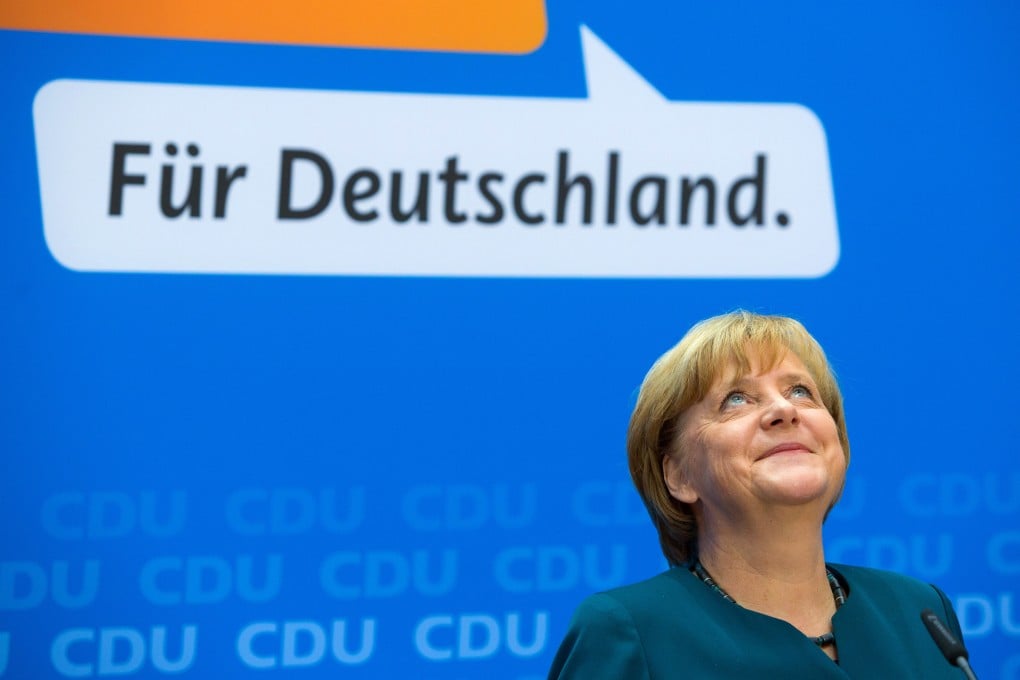Credit to Angela Merkel for preventing a break-up of the euro zone
Post-war German leaders have long argued German interests coincided with the greater European interests. Angela Merkel's singular achievement, vindicated by her latest election victory, is to have kept Germany in the heart of Europe even as terrifying sovereign debt crises exposed the fissures and conflicting interests between states within the euro zone.

Post-war German leaders have long argued German interests coincided with the greater European interests. Angela Merkel's singular achievement, vindicated by her latest election victory, is to have kept Germany in the heart of Europe even as terrifying sovereign debt crises exposed the fissures and conflicting interests between states within the euro zone.
There is no doubt that the German economy benefited enormously from the euro-driven economic union. But when the crisis broke out, German taxpayers, understandably, did not want to bail out foreign governments and financial institutions caught in the upheaval. Merkel's strategy was to protect the interests of her taxpayers while convincing them that the euro must be kept alive; otherwise the whole European project, the basis of the continent's peace and prosperity, could collapse. To this end, she imposed much-criticised austerity on the hard-hit peripheral states in southern Europe while pledging support to them by committing the equivalent of Germany's annual federal budget to various rescue funds.
Merkel preferred the step-by-step approach rather than any grand reform schemes. Euro-zone bonds to lower sovereign borrowing costs? No way. An even tighter banking union than currently planned? Forget it. She perceived that in all these big and ambitious schemes, Germany would be the one that ended up paying the most to support them, thereby putting German taxpayers on the hook.
Because of the delicate balancing act she had to pursue, she has been criticised, with reason, for dragging out the crisis rather than resolving it once and for all with a bold plan. But it's highly doubtful that without her cautious approach, German citizens would have gone along in helping the crisis-hit states. And without German backing, no rescue plan could work. Now, finally, the euro-zone economies are showing signs of life. Most likely, they still have a long way to muddle through.
Merkel may not have saved Europe. But she deserves credit for preventing a euro-zone break-up.